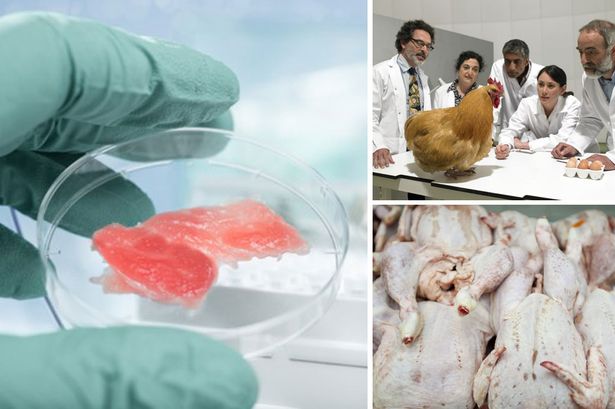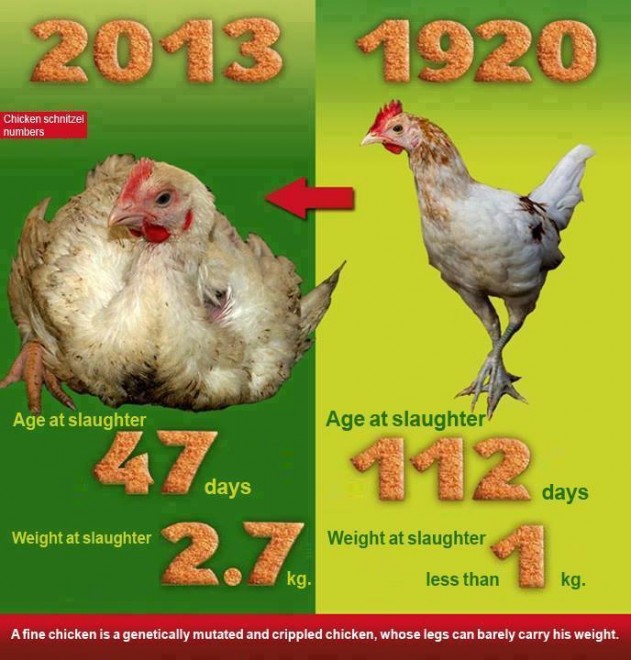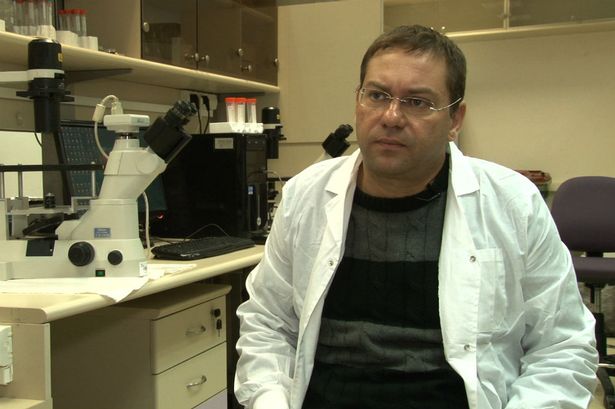Israeli non-profit Modern Agriculture Foundation (MAF) is developing lab-grown chicken meat that doesn’t require the rearing and slaughtering of birds. Since 2014, they’ve been researching mass production of cultured chicken meat from a single bird cell. If they succeed, we could soon be asking, Which came first, the chicken…or the chicken?
Chicken is the world’s second favorite meat product after pork, with an estimated 23 million chickens killed daily just to feed Americans. The United Nations estimates that by 2050 world population will exceed 9.6 billion. That’s two billion more mouths to feed, and increasingly, they’ll be meat-eaters. How is the food industry gearing up for demand?
In 2013, Green Prophet reported on the first lab-grown beef, an experiment undertaken by Maastricht University which culminated in a hamburger patty that cost roughly $325,000 to create. We questioned the viability of “victimless meat“: will consumer commitment to food with a lower carbon footprint overcome the “ick” factor of meat born in a petri dish? Considerable investment will be needed to scale up to commercial manufacture, so for now production of synthetic meat (or shmeat, or tubesteak) is now limited to research labs.
Did you know that ranching and livestock rearing now take up 30% of earth’s surface? Meat production causes negative environmental impacts ranging from soil erosion to deforestation with significant losses in biodiversity.
A report from the UN Food and Agriculture Organization found that current levels of meat production contributes up to 22 percent of the 36 billion tons of “CO2-equivalent” greenhouse gases (GHG) generated globally every year. Scientific American put that into perspective, calculating that producing half a pound of hamburger releases as much GHG into the atmosphere as driving a 3,000-pound car nearly 10 miles. The industry is also a voracious consumer of water (4,325 liters of water is required to produce 1 kg of chicken meat, according to the British Institute of Mechanical Engineers ).
“Earth cannot take it. It’s not a prediction or speculation. It’s truth. There’s not enough land on the planet to raise the animals. We are raising 70 billion land animals at the moment. We won’t have space for another 70 billion,” MAF cofounder and biologist Shir Friedman told Mirror Online.
Cultivated meat sidesteps animal cruelty and flock-shared disease such as Avian and Swine flu.
Chickens bred for meat are typically raised in highly efficient (and controversially cruel) intensive factory farms which accelerate the birds’ growth to market weight in six to seven weeks, a rate three times faster than in the mid-1900’s.
Use of growth hormones in poultry is illegal in the US and many other countries, but the animals are fed high calorie feeds to quicken weight gain, which cause all manner of medical problems to the birds including immobility. Proponents of cultivated meat will point out that the fried thigh you are about to tuck into may have been pressed to a feces-packed floor for the few months of its owner’s life, featherless and covered with sores.
Cultured meat is made from stem cells harvested from live animals. The cells are fed with a nutrient cocktail that enables them to grow into muscle tissue, which must be mechanically stimulated in order to develop properly. It is 100% meat, and involves no genetic engineering.
Tissue specialist Amit Gefen (pictured below) from Tel Aviv University’s Department of Biomedical Engineering is heading up the MAF study which aims to have devise a lab-cultured chicken meat recipe by January 2016, identifying all associated technologies, resources, and costs. The goal is to one day produce in factories on a commercial scale, which would require between seven and 45 percent less energy, 90% less fresh water and 99% less land, and would result in 80 to 90% less GHG emissions than the traditional chicken meat industry.
“If 2.5 billion people join us in eating only cultured meat by 2050, we get all those resources back. It’s truly a magic solution,” says Friedman.
Hebrew University Prof. Yuval Noah Harari, author of Sapiens: A Brief History of Humankind, says that if the process becomes economically feasible, “the ecological and ethical considerations would make cultured meat irresistible. Cultured meat is one of the most important revolutions in the history of food and in the history of humankind itself.”
MAF is an all-volunteer nonprofit organization founded in March last year. The project is privately funded.
Lead image of a chicken from Shutterstock, all others from MAF Facebook page.









Hope they make it affordable. Cos food we need everyday. Computer we just buy once